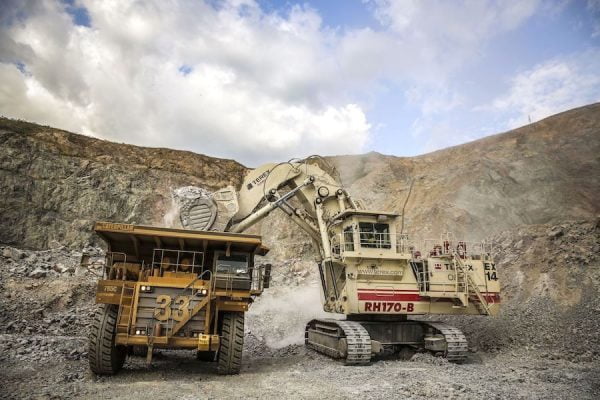Acacia shines despite Tanzania’s ban on the export of mineral concentrates

Acacia Mining beat forecasts on Monday with figures for its production and costs in 2018 that lifted the gold miner back into profit, but the company is still grappling with a long-running tax dispute in Tanzania where it operates all its mines.
Shares in Acacia, majority owned by Barrick Gold Corp , were steady while the rest of the market rose, finding little impetus despite reporting gold output of 521,980 ounces at a cost of $905 per ounce.
Both figures were lower than 2017 but ahead of expectations.
“Financials for Acacia remain somewhat of a sideshow due to the ongoing negotiations between parent Barrick and the government of Tanzania,” said RBC analyst James Bell.
Acacia has cut output by a third since the government banned the export of mineral concentrates in 2017 after accusing the firm of tax evasion, which the company denies .
The stock is still up more than 50 percent since September when Barrick said it was buying Randgold Resources and when Mark Bristow was named as chief executive, taking over as head of the merged entity from January.
Acacia’s gains were fuelled by expectations that Bristow, who has broad Africa experience, could reach a deal with Tanzania.
Acacia has cut output by a third since the government banned the export of mineral concentrates in 2017 after accusing the firm of tax evasion. Acacia denies the charges.
Peter Geleta, interim chief executive of Acacia, said talks with Tanzania were progressing but did not give details.
“Clearly there is momentum in the discussions and we are receiving feedback from the Barrick guys that negotiations are progressing well,” he told Reuters, adding Barrick had been unable to hold direct talks with Acacia.
Last week, Bristow declined to put a timeline on talks with Tanzania. Barrick’s head of Africa and Middle East operations Willem Jacobs is leading the negotiations.
Geleta said Acacia wanted to secure a negotiated settlement but was also working on international arbitration, which he said was “never the preferred option”. He said arbitration could offer an outcome by the end of 2019.
“Whatever settlement is reached needs to deal with the historical issues but it also needs to set the rules of the game going forward,” Geleta said, adding this would hopefully include repayment of valued added tax (VAT) that it put at $179 million.
Acacia said it expected production to be 500,000 to 550,000 ounces this year, at a cost of $860 to $920 per ounce.
Basic earnings per share totalled 14.4 cents compared to a loss of 172.5 cents a year earlier, while earnings before interest, tax, depreciation and amortisation (EBITDA) was $48 million in the fourth quarter, in line with expectations.
“They delivered a very good set of set of results operationally and 2019 promises more of the same,” Investec analyst Hunter Hillcoat said. “They are doing well, all things considered.”
Reuters

